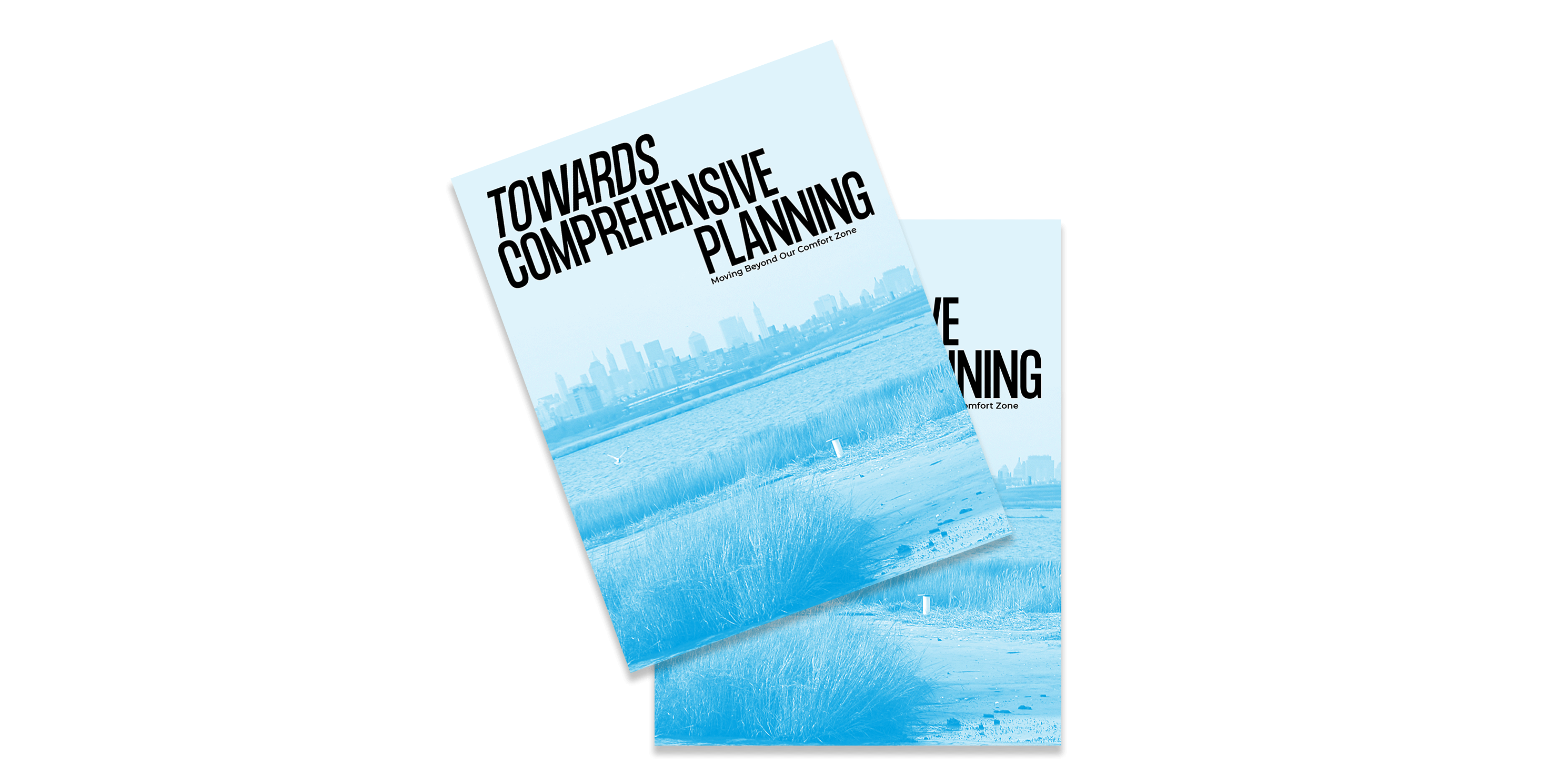Towards Comprehensive Planning
To advance a collaborative, community-based comprehensive planning framework
Currently, New York City does not have a comprehensive plan–a single document that facilitates future decision-making by specifying a city or town’s long-term development goals concerning land use, infrastructure, housing, open space, transit, and other types of services, in addition to addressing other concerns such as historic preservation, equity, resiliency, and sustainability. In the absence of a framework, the city relies on its zoning code and a series of piecemeal decisions that shape growth, investment, and neighborhood change. Throughout our history, MAS has continuously advocated for comprehensive community-based planning to ensure equitable growth, preserve historic resources, and to increase livability.
In December 2021, MAS released a policy brief, Towards Comprehensive Planning: Moving Beyond Our Comfort Zone, outlining ways New York City can advance a collaborative, community-based comprehensive planning framework.

Report Recommendations
- Convene a City Charter Revision Commission focusing on comprehensive planning, equity, ULURP, and civic engagement.
- Strengthen partnerships and engagement between new political leaders and Community Boards concerning long-term citywide comprehensive planning to build trust and promote collaboration in the land use process.
- Provide increased funding and resources for all Community Boards and Borough President Offices in the next budget process in order to fully engage in community-based planning.
- Utilize the Equitable Development Data Tool for proactive community planning purposes to identify and invest in rectifying disparities in historically underrepresented neighborhoods concerning access to affordable housing, parks and open space, schools, and transit.
- Implement Intro. 1620 in coordination with existing City policies and plans based on robust community outreach to fully address the consequences of climate change.
- Identify and prioritize solutions that help facilitate a comprehensive planning framework that creates a shared, action-oriented citywide vision balancing community and citywide needs.
Learning from Peer Cities
MAS believes that New York City can and should learn from other cities. After the public hearing in February 2021, MAS hosted a panel discussion on May 21, 2021 about comprehensive planning in other cities. The panelists included Lisa Fairmaner (Head of the London Plan and Growth Strategies, Greater London Authority), Susan Haid (Deputy Director of Planning, Long Range and Strategic Planning, City of Vancouver), and planner and landscape architect David Rouse (authoring a forthcoming book The Comprehensive Plan: Sustainable, Resilient, and Equitable Communities for the 21st Century). Watch “Global Cities in Conversation”
Using that conversation as a jumping off point, on July 21, 2021t, MAS hosted a subsequent program on comprehensive planning in New York City. The panelists included Tom Angotti (Professor Emeritus, Urban Policy & Planning, Hunter College and the Graduate Center, CUNY), Barika X. Williams (Executive Director, Association for Neighborhood & Housing Development, Inc. (ANHD)), and Jon McMillan (Director of Planning TF Cornerstone). Watch “New York City in Conversation”
On December 7, 2021, MAS hosted a third panel discussion on the intersection of comprehensive planning and historic preservation. The panelists included Ken Bernstein (Principal City Planner, City of Los Angeles Office of Historic Resources), Christopher Cirillo (Executive Director/President, Ascendant Neighborhood Development Corporation), and Dominique Hawkins (Managing Principal/Partner, Preservation Design Partnership, LLC). Watch “Preserving Historic and Cultural Resources”
Follow MAS:
MAS members and partners are crucial to everything we do. Please consider contributing to MAS and joining our community of advocates.
Support UsContact a staff member about this initiative. planning@mas.org >
